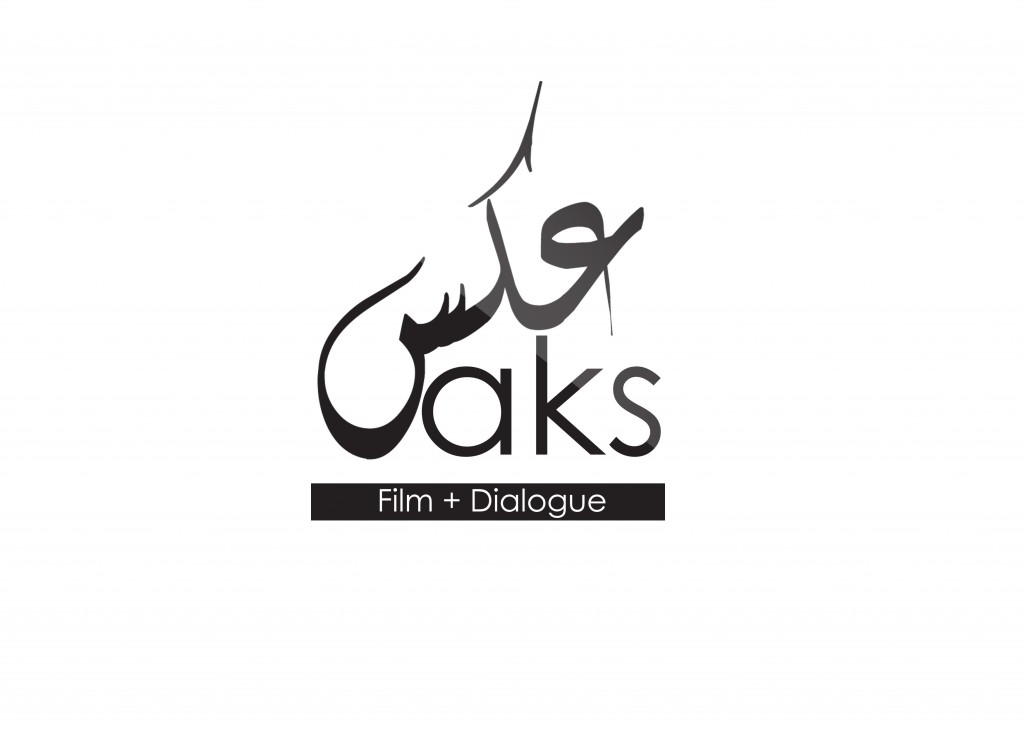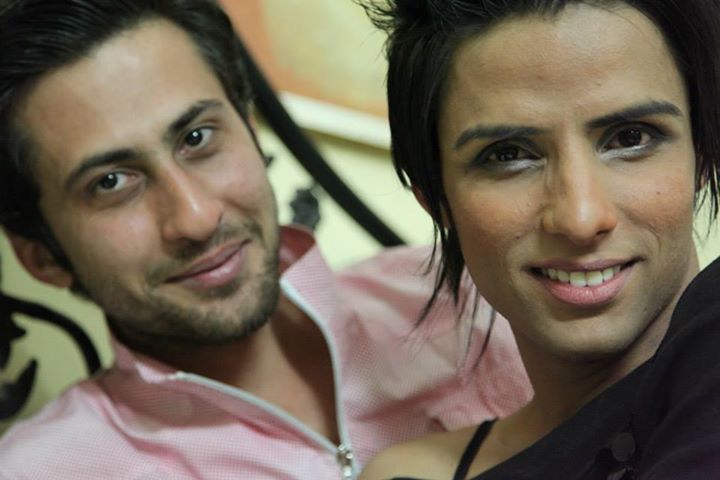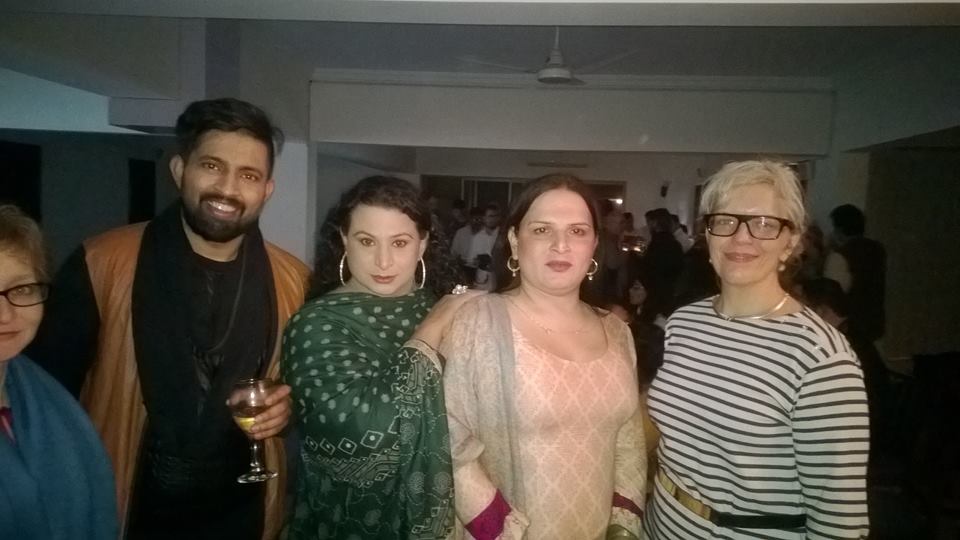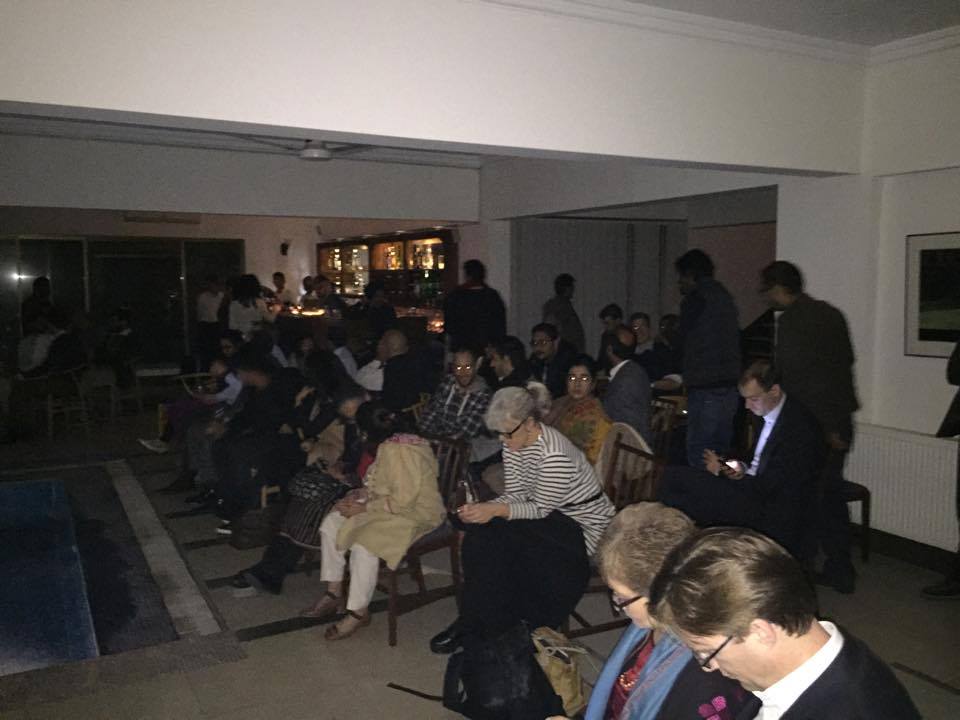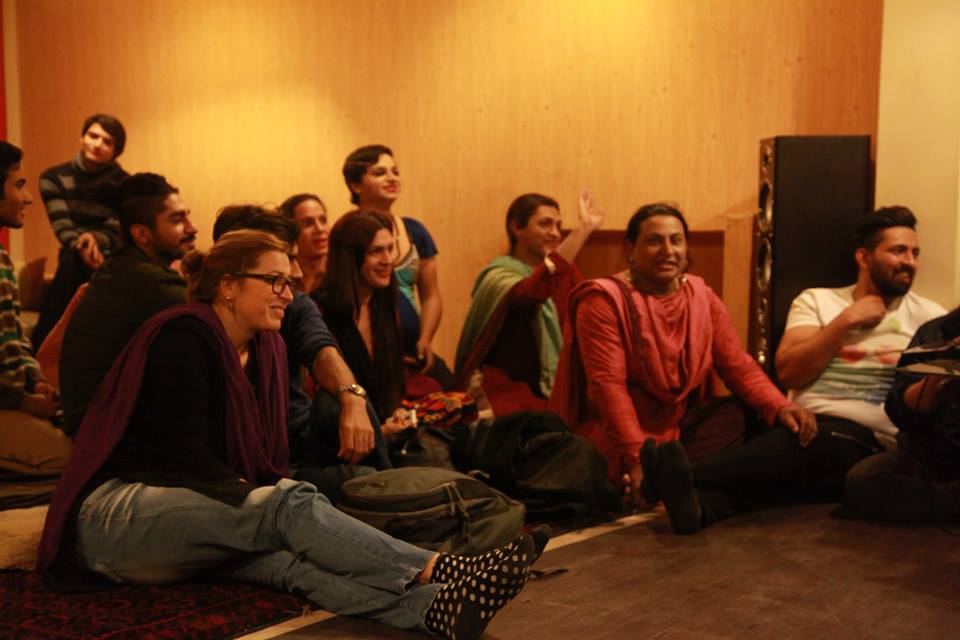The federal capital (Islamabad) and cultural capital (Lahore) of Pakistan witnessed AKS Film+Dialogue Festivalin the first week of December 2014, with the screening of over 23 films, workshops, debates and performing arts events on the issues of parallel sexualities. Hadi Hussain spoke to Saadat Munir, a film maker and director/curator ofAKS and talked about his journey from a film maker to the curator of a film festival.
Tell us about your journey as a film maker to curator of AKS Film+Dialogue Festival; your inspirations and struggles that evolved you into the person you are today.
Saadat Munir: Well, I consider myself more of an activist than a film maker or a festival curator. Being a double minority (queer and ethnic minority person) living in Europe, I have always been, and still am, in a continuous process of finding peace of mind both in regard with my cultural background and queer identity. I have been involved with ethno-queer organizations in Denmark and UK for more than a decade now. Apart from it, I have been working for different film festivals as curator, programmer and jurist.
In 2011, I came to Pakistan and started exploring the underground queer community. Along with my film maker friend Saad Khan and Neeli Rana, whom I met at a local NGO, I worked on my first documentary “Chuppan Chupai- Hide and Seek”. Through our documentary, we tried to portray an honest and unbiased image of a very fascinating and close knitted “Khawaja Sira” community of Pakistan. The documentary won several awards around the world including the Best Documentary Feature award at prestigious Kashish Mumbai International Queer Film Festival in 2013.
The idea of having AKS Film+Dialogue Festival was conceived by Neeli when she came to Copenhagen for the world premiere of our documentary‘Chuppan Chupai- Hide and Seek’. After the successful screening, Neeli asked, “Why can’t we have a film festival in Pakistan, a special one designed for and by the transgender community?” She further suggested to screen films that can raise questions and create possibilities for engaging audiences in a dialogue on the issues of transgender and other sexual minorities in Pakistan.
It has been such a wonderful experience that we decided to expand the scope of this festival into an NGO which will focus on serving marginalized communities in Pakistan through art, education and socio-political empowerment to enhance the visibility and awareness regarding the issues of sexuality.
What problems or challenges did you face while organizing this festival?
Saadat Munir: There were challenges galore and raising funds was the biggest of them all. Due to the sensitive nature of the festival, most organizations refused us money. Finally, all the board members of AKS decided to contribute personally to organize the first festival. We also received support from our friends through Indie GoGo fund raising campaign.
Another major challenge pertained to getting venues and logistical and technical support. But in the end, we did manage to pull it all.
That’s quite an achievement given all the challenges you faced, but I am sure it wouldn’t be possible without a motivated team. Who all helped you in it?
Saadat Munir: The core group consisted of me, Neeli Rana, Saad Khan and Jeppe Larsen. Jeppe Larsen served in the capacity of admin/producer, Saad Khan as production manager and programmer, Neeli Rana as spokesperson and visionary head of the festival and me as curator and creative head for the festival.
Our other tangible support came from our allies and supporters both in Lahore and Islamabad. In Lahore, our media partner Olomopolo Media, a private liberal art house and safe space for discussions and alternative art forms, hosted the event while providing us with complete logistic and technical support. In Islamabad, we were lucky to find allies through expat/diplomat community who were kind enough to facilitate us with venue for screenings and post festival social gatherings and entertainment.
But our biggest support has been the local transgender community, who came from the remotest parts of Pakistan to attend the event. As many movies were in foreign language, our volunteers provided live Urdu translation to them. The festival wouldn’t have been possible without them at all.
What was the response of the audiences in both the cities? Did you feel any difference?
Saadat Munir: The response in the two cities varied according to the overall culture of the respective cities. In Islamabad, audience consisted of human rights activists, delegates from foreign embassies and diplomats, members of various NGOs and liberal and young Islamabadians from different social strata of the city. They were very happy about the festival and gave us a positive feedback.
On the other hand, the audience in Lahore lived up to their city’s reputation with more cultural, artistic and community based participation. A lot of transgender community members came for the screenings and we had several dance performances from the community volunteers. The screening on December 1st ended with lighting up candles and offering prayers in memory of the deceased community members to also mark the World Aids Day.
All in all, we had around 500+ audience over the 6 days of the festival both in Lahore and Islamabad.
Tell us about the jury and winners in various film categories of the festival.
Saadat Munir: Our media partner Olomopolo had their own independent jury to choose the best films. Queen of my Dreams was declared as the Best Short Film while We Were Here won the title of Best documentary and Something Must Break took the title of Best Feature Length Fiction.
Where do you see AKS Film+Dialogue Festival in next five years’ time?
Saadat Munir: In next couple of years we see AKS more as a global project. We are already planning to do a parallel festival in Copenhagen this year to promote South Asian khawaja sira community on an international level. We are also hoping to organize AKS events in other cities of Pakistan as well as in other countries where we share more or less same context of marginalization. In fact, we have are in contact with friends and allies in India and Bangladesh for taking AKS there.


